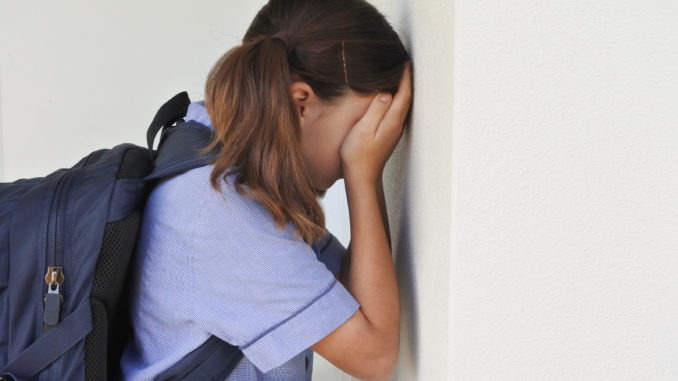
As reported by BBC news, sexual harassment has become “normalised” among school-age children, a report by the watchdog Ofsted warns
Students often do not see the point of reporting abuse and many teachers underestimate the scale of these problems, the schools watchdog says. Boys are sharing “nudes”, while some girls have experienced “unwanted touching in corridors”. Women’s groups are calling for school staff to be trained to change the culture and for a government taskforce. Ministers say schools and colleges will be encouraged to dedicate training days to help staff deal with sexual abuse.
The watchdog visited 30 state and independent schools and two further education colleges and spoke to more than 900 young people about sexual harassment. It found around nine in 10 of the girls spoken to by inspectors said that sexist name-calling and being sent unwanted explicit pictures or videos happened “a lot” or “sometimes”. Children said sexual violence typically occurred in unsupervised spaces outside of school, like parties or parks.
Pupils in several schools said harmful sexual behaviour happens at house parties, without adults present, and that alcohol and drugs are often involved. Most students felt that the relationships, sex and health education (RSHE) they received at school did not give them the information and advice they needed to navigate the reality of their situations. Girls in particular were frustrated that there was not clear teaching about what constitutes acceptable and unacceptable behaviour.
Many teachers said they lacked knowledge on topics such as consent, healthy relationships and sharing of sexual images. Inspectors are urging school and college leaders to “develop a culture” where all types of sexual harassment are recognised and addressed. They also say time should be set aside within the RSHE curriculum for topics that youngsters find difficult, such as consent and the sharing of explicit images.
Ofsted’s review came after thousands of testimonies about abuse were posted on a website – Everyone’s Invited – and the government asked inspectors to assess safeguarding policies and experiences in schools and colleges. In April, ministers also asked the charity, the NSPCC, to run an abuse in education helpline, which will stay open until October. As of Monday, the helpline had received 426 calls and helpline staff have made 80 referrals to external agencies, including the police or social services.
Ofsted chief inspector Amanda Spielman said she was “shocked” by the findings.
“It’s alarming that many children and young people, particularly girls, feel they have to accept sexual harassment as part of growing up,” she told BBC Radio 4’s Today programme.
“Whether it’s happening at school or in their social life, they simply don’t feel it’s worth reporting.
“This is a cultural issue – it’s about attitudes and behaviours becoming normalised, and schools and colleges can’t solve that by themselves.”
At every school Ofsted visited young people reported a significant problem, “it wasn’t in some, it was in all of them,” she said.
Spielman also said traditional reporting methods could not be relied upon.
Education secretary Gavin Williamson said: “Ofsted’s review has rightly highlighted where we can take specific and urgent action to address sexual abuse in education.
“But there are wider societal influences at play, meaning schools and colleges cannot be expected to tackle these issues alone.”
The Department for Education says teachers and school leaders will be better supported to recognise sexual harassment and abuse and teach confidently about issues of consent, online pornography and healthy relationships.
School and college leaders will be encouraged to dedicate training days to help train staff on how to deal with sexual abuse and harassment among pupils and how to deliver the new compulsory RSHE curriculum.
The End Violence Against Women Coalition said they were asking ministers to “take this issue seriously” by creating a taskforce made up of the government, education leaders, and experts on violence against women and girls “to advise on next steps and drive the rollout of a whole school approach”.
Peter Wanless, head of the NSPCC, said: “Crucially, Ofsted has listened extensively to children and that has helped expose what’s happening – this demonstrates that young people’s voices and experiences must shape policies and be central to the inspection process.
“There now needs to be a whole-school approach to preventing harmful sexual behaviour.”
Geoff Barton, head of the Association of School and College Leaders, said: “Nobody can fail to be shocked by the finding that children and young people don’t see any point in reporting sexual harassment because it is seen as a normal experience.
“The reasons why sexual harassment has become such a widespread issue are complex but it seems obvious that more must be done with greater urgency to tackle the misuse of social media and the availability of online pornography.”
A spokeswoman for Everyone’s Invited said: “Everyone’s Invited believes that there should be an anonymous reporting system available in all schools.
“This would help reduce the massive gap between incidents and reporting emphasised in the Ofsted report.”
The Report Abuse in Education helpline can be reached on 0800 136 663, on Monday to Friday 0800-2200, or 0900-1800 at weekends. It can also be contacted by email at help@nspcc.org.uk




Be the first to comment